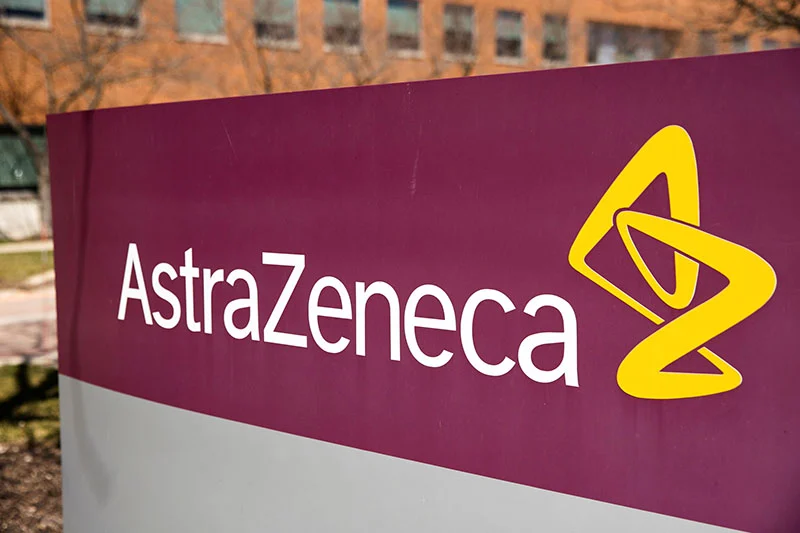
Datopotamab Deruxtecan Granted Priority Review by FDA for Advanced EGFR-Mutated NSCLC
AstraZeneca and Daiichi Sankyo recently announced that the U.S. Food and Drug Administration (FDA) has accepted their Biologics License Application (BLA) for datopotamab deruxtecan (Dato-DXd). This development marks a critical milestone for the treatment of adult patients with locally advanced or metastatic epidermal growth factor receptor-mutated (EGFRm) non-small cell lung cancer (NSCLC) who have progressed after receiving prior systemic therapies, including EGFR-targeted treatments. The FDA has also granted Priority Review for this application, underscoring the potential of this therapy to address significant unmet medical needs.
Priority Review and Breakthrough Therapy Designation
Priority Review is a designation reserved for therapies that demonstrate significant advancements in treatment efficacy or safety over existing options, especially in addressing serious medical conditions. Under this review pathway, the FDA expedites its evaluation process to ensure timely availability of promising treatments. In addition to Priority Review, datopotamab deruxtecan previously received Breakthrough Therapy Designation (BTD) for this patient population. The Prescription Drug User Fee Act (PDUFA) action date—the deadline for the FDA’s regulatory decision—is anticipated in the third quarter of 2025.
Supporting Clinical Evidence
The BLA submission and regulatory recognition are based on robust data from multiple clinical trials, including the TROPION-Lung05 Phase II trial, the TROPION-Lung01 Phase III trial, and the TROPION-PanTumor01 Phase I trial. These studies collectively highlight datopotamab deruxtecan’s clinical potential in overcoming resistance to current EGFR-targeted therapies.
At the European Society for Medical Oncology (ESMO) Asia 2024 Congress, pooled data from TROPION-Lung05 and TROPION-Lung01 trials showed a confirmed objective response rate (ORR) of 42.7% (95% confidence interval [CI]: 33.6-52.2), as assessed by blinded independent central review (BICR). Furthermore, the therapy demonstrated a median duration of response (DoR) of 7.0 months (95% CI: 4.2-9.8). Importantly, the safety profile of datopotamab deruxtecan was consistent with previous studies, and no new safety concerns were identified.

Addressing Critical Challenges in Advanced EGFR-Mutated NSCLC
Patients with EGFRm NSCLC often experience disease progression due to acquired resistance to frontline therapies, including EGFR tyrosine kinase inhibitors (TKIs). The availability of effective treatments for patients in advanced stages of the disease remains limited, creating an urgent need for novel therapeutic options.
Susan Galbraith, Executive Vice President of Oncology R&D at AstraZeneca, emphasized the importance of this advancement:
“Acquired resistance to frontline therapies and, ultimately, disease progression are unfortunate realities for most patients with advanced EGFR-mutated non-small cell lung cancer. This Priority Review, and the previously granted Breakthrough Therapy Designation, recognize the potential for datopotamab deruxtecan to provide a much-needed option to patients whose disease has become resistant to current treatments.”
Similarly, Dr. Ken Takeshita, Global Head of R&D at Daiichi Sankyo, highlighted the innovation behind the drug:
“Treating advanced EGFR-mutated non-small cell lung cancer presents a significant challenge due to the limited efficacy of available treatments once the disease has progressed following frontline therapies, including the use of an EGFR-tyrosine kinase inhibitor. If approved, datopotamab deruxtecan could become the first TROP2-directed antibody drug conjugate for lung cancer, providing a promising option for patients.”
The Science Behind Datopotamab Deruxtecan
Datopotamab deruxtecan is a TROP2-directed antibody-drug conjugate (ADC) designed using Daiichi Sankyo’s proprietary DXd ADC technology. TROP2 is a transmembrane glycoprotein highly expressed in several solid tumors, including NSCLC, and its overexpression is associated with aggressive disease and poor prognosis. The ADC leverages a highly specific TROP2-directed antibody conjugated to a potent topoisomerase I inhibitor payload via a stable, cleavable linker. This design allows for targeted delivery of the cytotoxic agent directly to tumor cells, minimizing off-target effects and enhancing therapeutic efficacy.
Ongoing Development Efforts
The potential of datopotamab deruxtecan extends beyond monotherapy. AstraZeneca and Daiichi Sankyo are investigating the ADC in various combinations and treatment settings. Currently, the drug is being evaluated in seven Phase III trials, including TROPION-Lung14 and TROPION-Lung15, which focus on its use as monotherapy and in combination with AstraZeneca’s EGFR TKI, Tagrisso® (osimertinib). These trials aim to expand the clinical utility of datopotamab deruxtecan in treating advanced or metastatic EGFRm nonsquamous NSCLC.
The collaboration between AstraZeneca and Daiichi Sankyo reflects their shared commitment to leveraging innovative technologies to address the challenges of advanced cancers. By integrating the expertise of both companies in oncology research and development, the partnership is poised to deliver groundbreaking solutions for patients in need.
Implications for Patients
If approved, datopotamab deruxtecan would represent a significant advancement for patients with advanced EGFR-mutated NSCLC who have exhausted other treatment options. The drug’s novel mechanism of action, targeting TROP2, has the potential to address gaps in the treatment landscape by overcoming resistance mechanisms that limit the efficacy of current therapies.
For patients and healthcare providers, the approval of datopotamab deruxtecan could mean improved outcomes, extended survival, and a better quality of life. As research continues to explore its application across other cancers, the drug could emerge as a cornerstone therapy for various TROP2-expressing malignancies.





